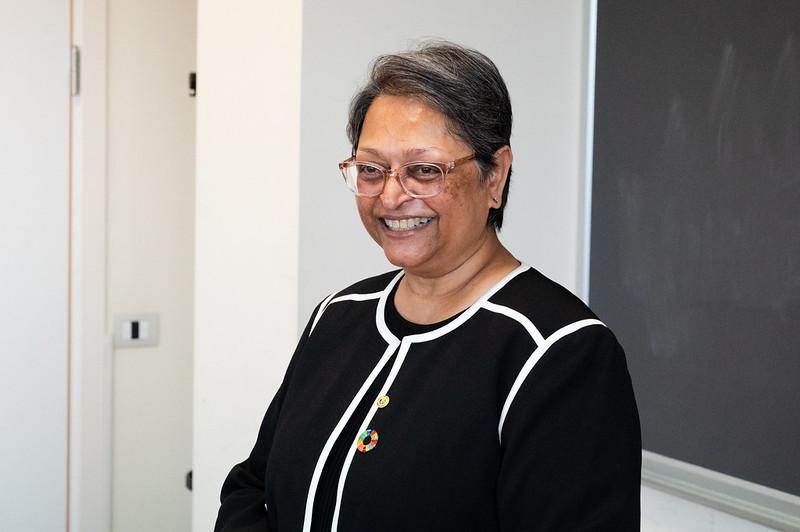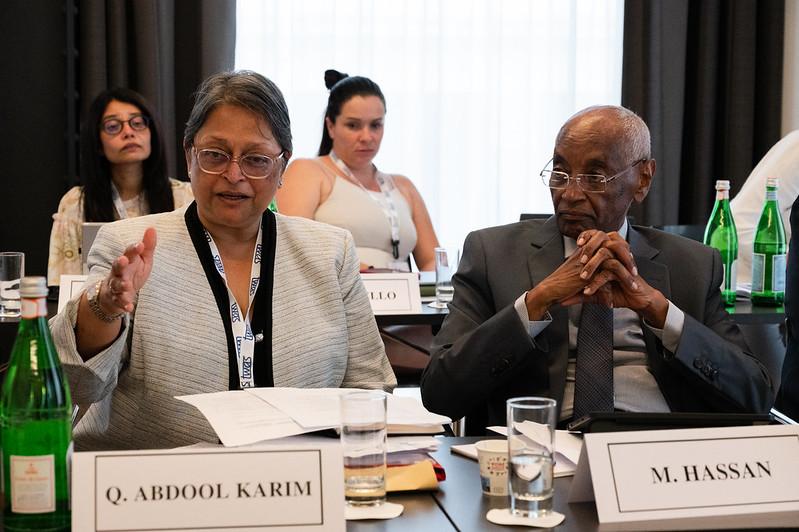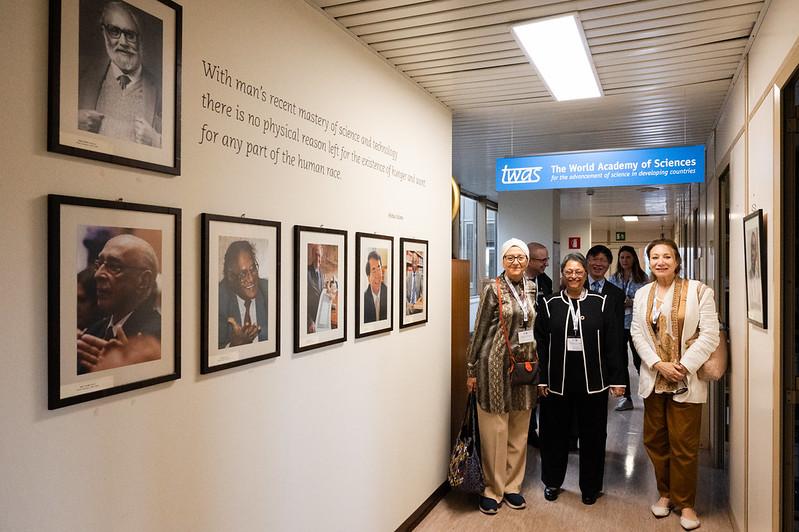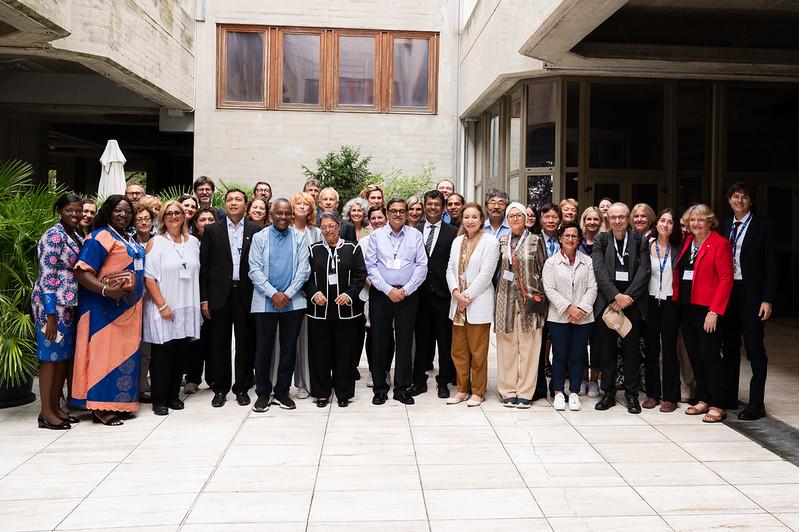
At this conjuncture, the challenges facing humanity are global and complex. Ongoing and new pandemics, climate change, and increasing levels of inequality underscore the need for an approach to science that will find solutions that transcend borders. This fundamental truth undergirds the mission for TWAS, which has continued to build scientific capacity and research infrastructure, to catalyse scientific responses, notably in countries where the need is greatest, and the populations are most vulnerable.
In this digital TWAS Newsletter, we see numerous examples of how TWAS has contributed to building the foundations for this future. From science diplomacy to the research conducted through its grants and fellowships, the Academy, over the past four decades, has been catalysing and facilitating a better future for the developing world by nurturing its young scientific minds.
I recently had the pleasure of visiting TWAS headquarters in Trieste, Italy, for the 43rd TWAS Governing Council Meeting — the first face-to-face meeting in four years! In this beautiful city that overlooks the Adriatic Sea, with an unparalleled science and intellectual hub, home to the legendary International Centre for Theoretical Physics (ICTP), I also had the privilege to participate in the 2023 Trieste Next science festival.

The Governing Council had the opportunity to learn more about the organizations behind the Scientific and Innovation System of Friuli Venezia Giulia (Sis FVG). We visited their booths at the Trieste Next festival, and talked to many enthusiastic researchers. Trust in science and science communication and engagement with the general public is even more critical for scientists, and the two successful TWAS sessions at the festival — ‘Science for a better world’ and ‘Science as a development tool: the capacity we need for the future we want’— showcased the Academy’s commitment to public engagement.
At this critical conjuncture of unprecedented social, political, and economic upheavals, as well as deepening inequalities worldwide, the role of science in an era of uncurated access to information is even more paramount. While scientific breakthroughs are improving the quality of our lives globally, science is also increasingly politicized. The growing pandemic of disinformation threatens not only democracies, but the very concept of truth, making strong science communication to the public an urgent imperative.
TWAS has accomplished a lot in four decades, but much remains to be done. The mid-term review of the implementation of the UN 2030 Agenda is a sobering reminder of how much we still need to achieve, especially in the Global South. For example, since 2021, the number of out-of-school children has increased by 6 million and now totals 250 million. While the COVID-19 pandemic reminded us of our interconnectedness and shared vulnerability, and what science can accomplish when we work with unity of purpose, it was more than an infectious virus. The exacerbation of existing inequalities demonstrates the costs of inequitable access to scientific solutions when faced with global threats. As the world faces new and ongoing threats, humanity will not overcome the challenges it faces without global solidarity and partnerships. As TWAS shows solidarity across the global South through its international fellowships and other projects, so too must we work together in all spheres, through bonds of trust and mutual prosperity, to ensure a better world for future generations.

Together with the collective brain trust of TWAS Members, an active network of TWAS Young Affiliates, a dedicated Secretariat, and our committed regional partners; we will continue to advance the bold vision of the TWAS founders. Through this continued collaboration and partnerships we will meet the changing workforce needs of the 4th Industrial Revolution and harness the promise of technological advances that will leapfrog us to a more equitable and sustainable future that ensures a worthy legacy for generations to come.
Quarraisha Abdool Karim,
President, TWAS


